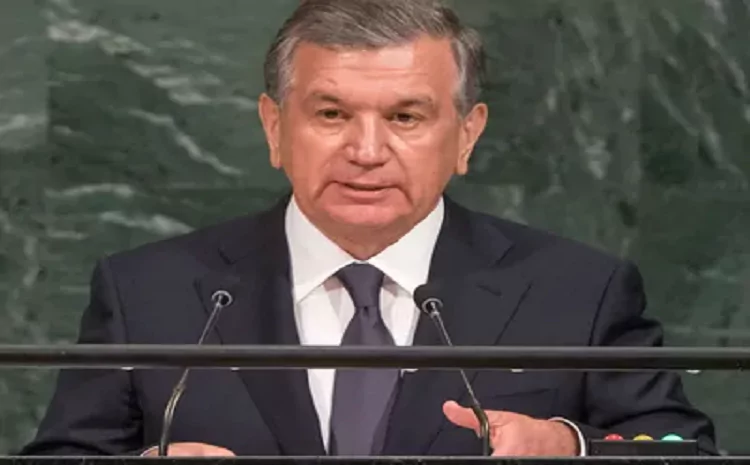Shavkat Mirziyoyev has served as President of Uzbekistan since 2016. His tenure has focused on an ambitious reform agenda aimed at modernizing the country’s economy and international relations.
Key Facts
- Born in 1957 in Zaamin district of Jizzakh region
- Graduated from Tashkent Institute of Irrigation and Agricultural Mechanization Engineers
- Served as Prime Minister of Uzbekistan from 2003-2016
- Assumed presidency upon the death of Islam Karimov in 2016
- Launched policy called “New Uzbekistan” focused on reforms
- Married with 3 daughters
Domestic Policy Agenda and Reforms
When President Mirziyoyev came into office, he kickstarted sweeping reforms under the “New Uzbekistan” policy centering on:
- Boosting private sector growth
- Attracting foreign investment
- Decentralizing decision-making from a rigid bureaucracy
- Empowering citizens through public services upgrades
Mirziyoyev recognized the need to move Uzbekistan away from its state-run economy towards a market-based model friendly to business.
Some major domestic policy reforms include:
- Privatizing thousands of state assets
- Streamlining business regulation like simpler registration and tax filing
- Establishing new Free Economic Zones with tax breaks
- Expanding transport links and upgrading energy infrastructure
- Increasing government transparency and cracking down on corruption
- Lifting currency restrictions and shortages
- Introducing unemployment benefits and guaranteeing minimum wages
These measures have won President Mirziyoyev praise for shifting the economic trajectory of the country towards greater prosperity. More open trade and investment regimes also integrate Uzbekistan deeper into global markets.
Foreign Policy Vision
Alongside internal reforms, Shavkat Mirziyoyev aims to elevate Uzbekistan’s role internationally by:
- Resolving border and water disputes with neighbors
- Increasing regional cooperation with institutions like the UN
- Attracting tourism through simpler visa regimes
- Deepening partnerships with democracies like the US and EU as well as Russia, China and others on a bilateral basis
For instance, President Mirziyoyev has worked to settle disputes over water usage and unmarked borders with neighboring Tajikistan and Kyrgyzstan. This enables greater trust and economic coordination regionally.
He also inked a new Enhanced Partnership with the European Union boosting cooperation on human rights, governance reforms and sustainable growth.
Meanwhile ties with Russia remain important through the Commonwealth of Independent States regional bloc. Uzbekistan also joined the Russian-led Eurasian Economic Union in 2022 to enable trade.
So President Shavkat Mirziyoyev deftly balances Uzbekistan’s foreign relations amidst rising global power competition.
Critical Views and Challenges
Despite widespread plaudits, some criticisms of Mirziyoyev’s regime endure regarding:
- Slow improvements in civil liberties and free speech
- Persecution of minority religious groups
- Alleged preferential deals for Mirziyoyev family businesses
- Uncompetitive parliamentary elections falling short of OSCE standards
Government restrictions on NGOs also raise questions about the pace of democratization.
Ongoing economic hurdles like double-digit inflation dented by the pandemic complicate transition efforts too.
Nevertheless, President Mirziyoyev retains public approval for his ambitious slate of reforms. Over 75% endorse his policies per recent opinion polls.
Leadership Style and Vision
Known for his lively public speaking peppered with jokes, Shavkat Mirziyoyev cultivates a relatable common-man leadership style.
He convenes citizen assemblies and public councils to hear directly from Uzbek people as part of his feedback-driven governing. Regular regional tours also showcase grassroots development progress.
At recent UN addresses, the Uzbek President outlined further phases of modernization aligned to UN Sustainable Development Goals. Uzbekistan aims to grow into an upper middle-income nation by 2030 through ongoing pro-business, pro-people upgrades.
So under Mirziyoyev’s active reform agenda, the country seems on an upward trajectory boding well for higher incomes and living standards. With strategic investments in transportation corridors and green energy too, Uzbekistan positions itself strongly for a more prosperous future guided by Mirziyoyev’s bold vision.

